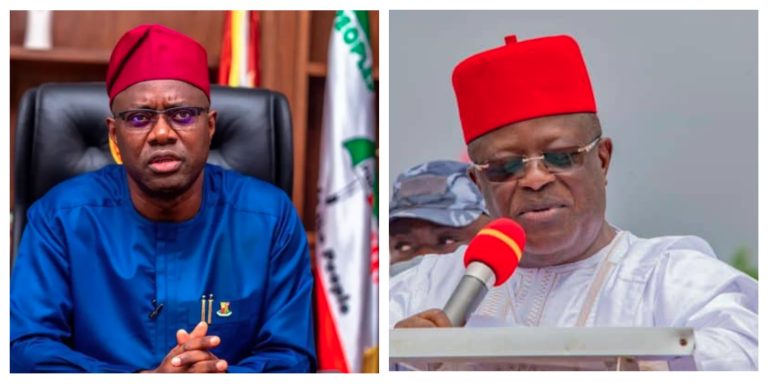Makinde Criticizes Works Minister, Dave Umahi Over Lack of Clarity on Lagos-Calabar Coastal Highway Costs

Oyo State Governor, Seyi Makinde, has criticized Works Minister David Umahi for avoiding clear answers on the cost of the Lagos-Calabar Coastal Highway, calling for greater transparency in the multi-billion-naira project.
The governor’s remarks follow a tense live television exchange between Umahi and Arise TV anchor Rufai Oseni on Tuesday. Oseni asked the minister to break down the project’s cost per kilometre, but Umahi resisted, insisting that the figures vary across different stretches and that the question was too complex. He described himself as a “professor” in engineering and told Oseni, “Keep quiet and stop saying what you don’t know. I understand engineering very well. You have no knowledge of what you’re asking.”
Oseni stood his ground, replying, “Minister, it’s alright, keep dignifying yourself, and let the world know who you truly are.”
Makinde defended the journalist, stressing the importance of clear information on public spending. He cited examples from Oyo State: the Oyo–Iseyin road, spanning about 34–35 kilometres, cost nearly N10 billion, averaging N238 million per kilometre. Meanwhile, the Iseyin–Ogbomoso road, 76 kilometres long, cost around N43 billion, averaging N500 million per kilometre, which included two bridges over the Ogun River and at Ogbomoso.
The Lagos-Calabar Coastal Highway, a 700-kilometre road cutting across nine states with two spurs to northern states, was launched last year. Umahi recently handed over the first phase—a 47.47-kilometre dual carriageway—to Hitech Construction Company Limited for construction with concrete pavement.
Accompanied by the Federal Ministry of Works’ Lagos State Controller, Mrs. O. I. Kesha, Umahi emphasized that contractors must complete projects on schedule and warned that delays or cost variations would not be tolerated once mobilization is complete.
Makinde’s intervention has reignited public debate over accountability and transparency in Nigeria’s major infrastructure projects, highlighting citizens’ demand for clear and detailed reporting on government spending.


